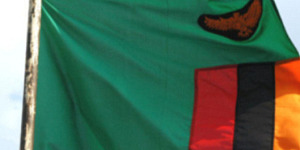 Fitch Rating agency has revised Zambia’s long term outlook to Stable from Positive but affirmed its ‘B’ rating.
Fitch Rating agency has revised Zambia’s long term outlook to Stable from Positive but affirmed its ‘B’ rating.
The agency also noted that policy coherence and credibility are weak and a growing constraint on the rating.
In a statement, Fitch further expects growth to slow to 5.3% in 2015, down from 6% in 2014 and 6.7% in 2013, but still above the ‘B’ median of 4.2%.
It said growth could slow further if copper mines are forced to close, due to the new mineral royalty tax and lower copper prices, aggravated by high operating costs adding that a faltering mining sector would have negative spill-over effects on the broader economy.
The agency says numerous policy decisions since 2012 – most recently changes to the VAT regime and mining taxes – appear to have been legislated without widespread private sector consultation and have contributed to weakening the business environment.
‘In the 2015 budget, the government changed the tax regime for copper mining companies, introducing a mineral royalty tax – a tax on production rather than profit,’ it said.
It added that the new tax could undermine the viability of certain mines at current low copper prices.
‘Although the government has committed to negotiate with mining companies, changing the tax regime without adequate consultation has resulted in significant uncertainty in the sector and contributed towards a delay in foreign investment,’ it observed.
The agency observed that an IMF Mission is expected in March 2015 but it does not expect that a deal will be reached ahead of the elections in September 2016.
‘Zambia’s vulnerability to external shocks has increased, due to lower copper prices pushing the current account further into deficit and declining reserves, which Fitch expects to fall below three months of import cover in 2015,’ it said.
Fitch also forecasts a deficit of 3.5% of GDP in 2015, up from 2.6% in the previous year adding that with the current account recording a deficit for the second consecutive year in 2015, it expects the authorities to seek between USD600m and USD1bn in external concessional funding to finance the balance of payments deficit or risk a sharper fall in reserves.
It noted that downward pressure on the Kwacha, which abated in the second half of last year following the prospects of an IMF programme and tighter liquidity, appears to have regained momentum.
The Kwacha has fallen by 9% against the dollar since the start of the year, following a 13% depreciation in 2014.
Fitch also forecasts a deficit of 5.3% of GDP noting that fiscal risks arise from potentially repaying VAT arrears, revenue underperformance due to low copper prices and unforeseen consequences of the new mineral royalty tax, ongoing subsidies and increased spending ahead of the 2016 elections.



































